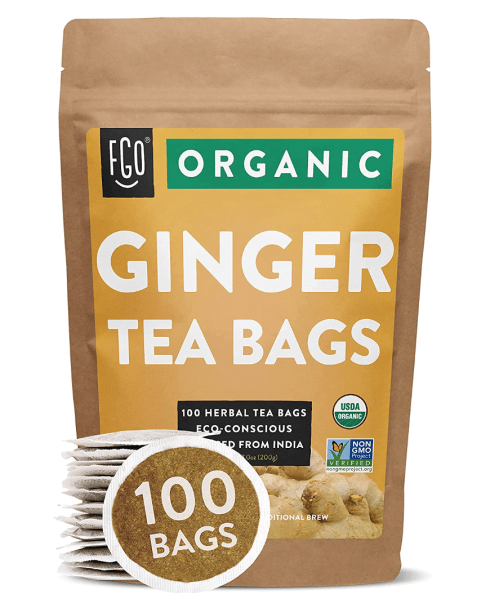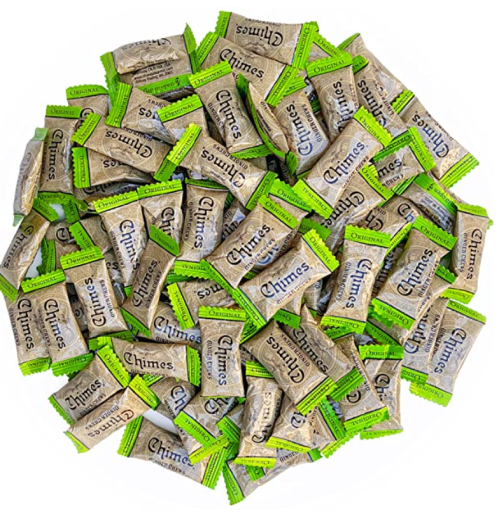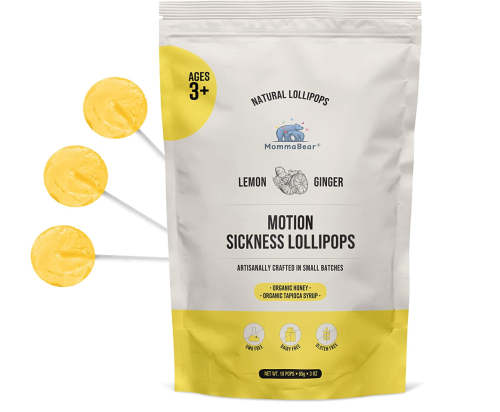Our editors independently select these products. Making a purchase through our links may earn Well+Good a commission
Can Drinking Ginger Ale *Actually* Help You Feel Less Nauseated?
Ginger ale has long been used as a remedy for nausea, but does it really help? Discover the potential benefits.

If you’ve ever been on a boat that hit rough waters or stuck sitting in the back of a van on a long road trip, you know that nausea is just about the most anti-fun, vacation-ruining symptom someone can experience. And you don’t have to be on vacation for it to strike. Some people get nauseated every time they have a period. Pregnant women can get it from prenatal vitamins (not to mention from, you know, pregnancy itself).
Experts in This Article
host of the Media Savvy Podcast, creator of BetterThanDieting.com, and author of board-certified physician specializing in sports medicine and pain management
No matter where and when nausea hits, you likely just want to get rid of it—and fast. Over-the-counter medications that contain bismuth subsalicylate (like Pepto-Bismol) or pain-relievers that aim to quiet a headache or migraine that caused the nausea in the first place may help in some situations.
However, there’s one natural ingredient that has some really impressive anti-nausea properties, and that’s ginger. This common cooking ingredient used to spice up dishes and drinks is known to be a potent antidote to motion sickness, pregnancy-induced nausea (aka morning sickness), and nausea as a result of chemotherapy, says gastroenterologist Kyle Staller, MD, MPH, assistant professor of medicine at Harvard Medical School, and spokesperson of the American Gastroenterological Association. That’s why it’s one of the most common home remedies for nausea.
So, was your mom onto something when she handed you a ginger ale after a bout of food poisoning? Does ginger ale help with nausea?
What ginger actually is
Ginger, a plant that’s actually more known for its root, can be found in lots of varieties. From fresh ginger to pickled ginger, powdered ginger spice to supplements, there are lots of ways someone can eat (and drink!) it.
Gingerol, the active compound in ginger, is fat-soluble, meaning it’s best absorbed alongside foods containing fat, so eating ginger with, say, olive oil or another healthy fat will help you get the most out of the ingredient, says dietitian Bonnie Taub-Dix, RDN, author of Read It Before You Eat It.
In addition to helping to ease nausea and vomiting, the benefits of ginger include its ability to help relieve bloating, improve digestive health and motility, and reduce inflammation, says Taub-Dix.
Why ginger can help with nausea
Why do hospitals give ginger ale? Because ginger is shown to help settle your stomach and can be one answer to the question of how to stop nausea fast.
While it’s not entirely understood what’s happening inside the body that gives ginger its anti-vomiting effect, the regulation of serotonin receptors may play a role, says Dr. Staller. “Serotonin is a neurotransmitter that plays a role in regulating various bodily functions in the gut, including the sensation of nausea,” he says. “Ginger may help modulate serotonin receptors in the GI tract, thus reducing the signals that trigger nausea and vomiting.
Another potential reason is connected to ginger’s ability to impact the movement of the gut, says Taub-Dix. As ginger moves digestion along, it may impact how the stomach empties food into the upper part of the intestine, which could therefore curtail sickness.
But keep in mind…
One caveat, adds Reuben Chen, MD, sports medicine physician and Sunrider international chief medical advisor: “Keep in mind that while therapeutic doses have been shown to help with nausea, higher doses may cause nausea as well as indigestion.” Essentially: You don’t want to overdo it with ginger for nausea—it could backfire.
There are also certain people who actually may want to skip the ginger, such as those with diabetes or anyone on blood thinners. Pregnant women may also want to limit their intake to one gram per day. This is because ginger can have a mild blood-thinning effect, and it can also lower our blood sugar levels.
How to take ginger for nausea
While most types of ginger should do the trick to quell nausea and vomiting, it’s common to have candy, such as a ginger chew or lollipop, on hand for these instances likely because of the simple portability and accessibility. They can quickly help ease an upset stomach on the go.
For pregnant women experiencing morning sickness, taking ginger in small doses (less than one gram a day) such as through ginger tea, is a safe and effective way to battle nausea, adds Dr. Chen.

Organic Ginger Tea Bags — $19.00
$19 for 100 tea bags

Chimes Original Ginger Chews — $15.00
$15 for a one-pound bag

MommaBear Organic All-Natural Motion Sickness and Morning Sickness Relief Lollipops — $14.00
$14 for pack of 10
Is ginger ale good for nausea? When it comes to the trusty soda, unfortunately, this is more of a habitual remedy than a scientific choice. That’s mostly because ginger ale contains very little to no actual ginger, says Dr. Chen. And those bubbles could actually backfire. While “the carbonation could help someone burp and relieve some gas, if bloat is a part of the discomfort you’re feeling, then that carbonation could just make things worse,” says Taub-Dix.
So, what is the best thing to drink when nauseous? You’re likely better off with ginger tea, since it’s made with real ginger. You can make it yourself with freshly grated ginger (1 tsp per cup of hot water), or use a powdered packet.
That said, there’s something calmingly familiar to popping open a can of Canada Dry. It might remind you of a parent giving you ginger ale to soothe a stomach ache as a kid. So if reaching for a soda when you’re nauseous just “feels right,” there’s no harm, Taub-Dix says. Just don’t expect miraculous results. The truth is you might be better off with a little self-administered acupressure. But nobody can deny a helpful, nostalgic placebo effect.
Sign up for the Well+Good SHOP Newsletter
Get exclusive deals on wellness, beauty, fitness, and food products that have been hand-picked by our editors.
Got it, you've been added to our email list.
I Love to Clean—but When I Can’t Do It Myself, This Is the Home Cleaning Service I Trust
No time to clean? No problem. Homeaglow's network of home cleaning professionals have you covered.

An Island Escape Taught Me That True Balance Lives Between Quiet Moments and Bold Exploration

I’m a Digital Nomad, and This Is the Illness-Fighting Supplement I Always Travel With
Because the only thing I want to catch while traveling is a beautiful view.

These Are the Only Sandals I’d Dare to Wear on a New York Sidewalk
My go-to kicks are made for the trail, but they stand up to city grime and keep my feet cool all day.

The Island Vibes at This Ibiza Hotel Reminded Me to Prioritize Joy, Even When I’m Not Feeling It
And I'm already patiently waiting for my next trip back.



